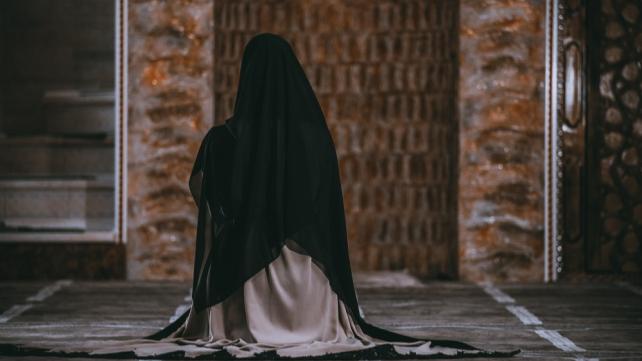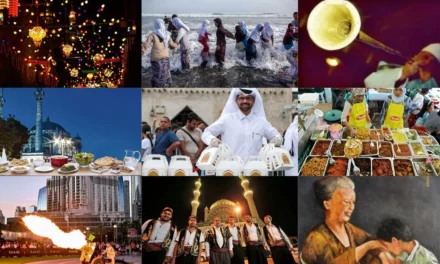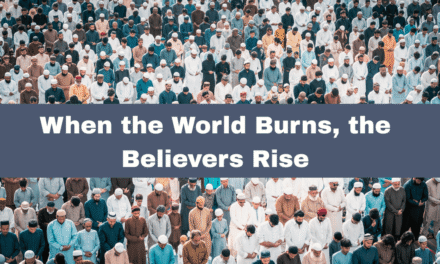Islam improves and enhances the culture within a nation and improves the lives of citizens, especially the women. Islam brings balance and order to societies. In the history of humankind, there is a tendency toward unfairness and subjugation of women. In Islam, we know this is wrong.
Many cultures do not value the lives of women. Historical misconceptions and superstitions may paint women as witches or creatures that are not equal or as capable as men in spiritual matters and belief. Many cultures view women as expendable to society or exploit women and take away their rights to have any assets or self-determination. Islam takes away those injustices.
Believers:
- The Quran teaches humankind that both men and women are capable and expected to submit to Allah and that they work together towards that goal.
“The believers, both men and women, are allies of one another. They enjoin good, forbid evil, establish Prayer, pay Zakah, and obey Allah and His Messenger. Surely Allah will show mercy to them. Allah is All-Mighty, All-Wise” (9:7).
Right To Live:
- Women’s life is valuable and substantial, as the Quran forbade female infanticide (practiced in pre-Islamic Arabia and in other parts of the world) and teaches the disbeliever that such actions are sinful.
“And when the female infant buried alive is asked for what sin was she killed” (81: 8-9).
Preserve And Protect Wealth:
- The Quran teaches us that women, especially orphans or women under the care of others due to diminished resources, will retain the wealth and property owed to them. In fact, it is an obligation to bestow it upon them. Wealth lends to status and self-determination which is often challenged in many cultures.
“…and for the women a portion of what is left by parents and near relatives what is little of it or much, a portion obligatory” (4:7).
Not Deliberately Impoverished Or Slandered:
- In the Quran Allah instructs us that women are not thrown out of marriages on a whim and then forced to leave penniless or with their wealth taken from them. That wealth is not just financial, but the affluence of a good name and reputation which allows them to live peacefully and respectfully in the society.
“…then do not take away from it anything. Would you take it by slander and a sin open?” (4:20)
No Forced Marriages Or Prostitution:
- Again, the Quran ensures that women are not exploited and used by evil men in society. Men are explicitly warned not to force women into marriage or take advantage of and misuse vulnerable women in the society. In the Mercy that only comes from Allah, He teaches us that if a woman finds herself in this predicament, that the sin belongs to the oppressor, not she who is oppressed and thus Allah will forgive and be merciful towards her.
O you who have believed, it is not lawful for you to inherit women by compulsion” (4:19).“…Do not force your slave girls into prostitution for your own worldly gains while they wish to remain chaste. And if someone coerces them, then after such a coercion Allah is certainly All-Forgiving, Most Merciful ˹to them” (24: 33)
- In fact, the Quran orders that women should be given a gift upon marriage and treated kindly. If the marriage does not work out and the couple divorces, she must be treated with justice and fairness.
“And give the women [upon marriage] their [bridal] gifts graciously” (4:4).
And live with them in kindness. For if you dislike them – perhaps you dislike a thing and Allah makes therein much good” (4:19).
And when you divorce the women and they reach their term of their waiting period then retain them in a fair manner or release them in a fair manner
And do not retain them with the intention to hurt them… (2:231)
With the knowledge and guidance from the Holy Quran, it is a wonder that many Muslim majority societies have seen a decline in the rights and respect of women. The greatest disparity has been between the norms of the Prophetic period and those of subsequent ages.
Prophetic society lacked the rigid divisions of social space that became characteristic of many Islamic societies later in history. Also, in the Prophetic age when Islam was blossoming, due to the nature and guidance of Prophet Muhammad, God’s peace and blessings be upon him, society was deliberately moving away from patriarchal oppressive norms which gave women greater freedom and allowed them a conspicuous role within the matrix of social and civic life.
Muslim women during the Prophet’s age were quite amazing. They were full sisters in faith with the men, working both in and outside the home and integrated in the society socially and politically serving in a multitude of roles.
- Foster Parent: Umm Ayman or Umm Barakah, radi Allahu anha (may Allah be pleased with her)
- Archivist: Hafsah bint Umar (ra) memorized and kept the only written copy of the Quran that we use today.
- Business woman: Khadijah bint Khuwaylid (ra)
- Social Worker and Benefactor: Zaynab bint Khuzama (ra), also known as Mother of the Poor
- Public Administrator: Ash Shifa bint Abdullah (ra) – administrator in Madinah and later head of Health and Safety in Basra, Iraq
- Market Inspector: Samra bint Nuhayk al Asadiyya (ra)
- Soldier: Nusaybah bint Ka’ab (ra) – defended the Prophet at Battle of Uhud
- Scholar: Rabi’ah bint Muawwad (ra) – scholar of fiqh, taught the scholars of Madinah
- Muhaddithat – Umm Atiyyah (ra) – narrated many hadith
- Martyrs: Sumayyah bint Khayyāṭ (ra) – the first martyr in Islam
Although we have the experiences of these Muslim women and countless others, many Islamic societies have fallen away from respect and care for Muslim women because of tribalism, political and economic strife, corruption, ignorance, colonialism and misinterpretation of Islamic principles. Let us return to the guidance from the Quran.














